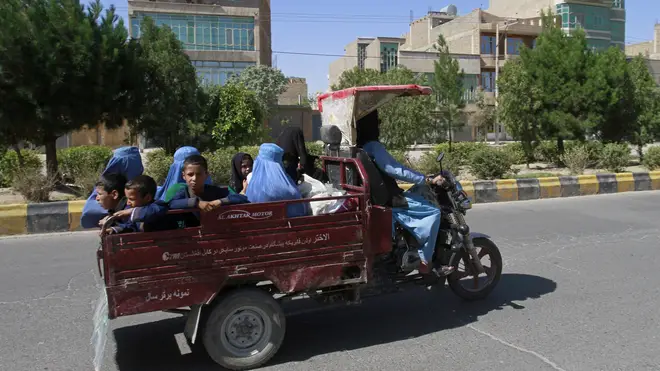
Simon Marks 4pm - 7pm
17 August 2021, 17:24

Leaders of the militants moved to address concerns that the movement would revert to policies they enacted before they were evicted from power.
A Taliban spokesman gave a qualified promise that the insurgents who overran Afghanistan in recent days would respect women’s rights.
In his first news conference, Zabihullah Mujahid, who had been a shadowy figure for years, stressed the Taliban’s efforts to convince the world that it has changed from the group that imposed a brutal rule on the country in the 1990s.
Mr Mujahid promised the Taliban would honour women’s rights, but within the norms of Islamic law.
Earlier, Enamullah Samangani, a member of the Taliban’s cultural commission, promised amnesty and encouraged women to join the government.
But many Afghans remain sceptical.

Older generations remember the Taliban’s ultraconservative Islamic views, which included severe restrictions on women as well as public stonings and amputations before they were ousted by the US-led invasion following the September 11 2001 terror attacks.
The capital of Kabul remained quiet for another day as the Taliban patrolled its streets and many residents stayed home, remain fearful after the insurgents’ takeover saw prisons emptied and armouries looted.
Many women have expressed dread that the two-decade Western experiment to expand their rights and remake Afghanistan would not survive the resurgent Taliban.
A broadcaster in Afghanistan said she was hiding at a relative’s house, too frightened to return home much less return to work following reports that the insurgents are also looking for journalists.
She said she and other women did not believe the Taliban had changed their ways.

She spoke on condition of anonymity because she feared for her safety.
Mr Samangani addressed the concerns of women, saying they were “the main victims of the more than 40 years of crisis in Afghanistan”.
“The Islamic Emirate of Afghanistan is ready to provide women with environment to work and study, and the presence of women in different (government) structures according to Islamic law and in accordance with our cultural values,” he said.
That would be a marked departure from the last time the Taliban were in power, when women were largely confined to their homes.
Mr Samangani did not describe exactly what he meant by Islamic law, implying people already knew the rules.
In another sign of the Taliban’s efforts to portray a new image, a female television anchor on the private broadcaster Tolo interviewed a Taliban official on camera in a studio, an interaction that once would have been unthinkable.
Meanwhile, women in hijabs demonstrated briefly in Kabul, holding signs demanding the Taliban not “eliminate women” from public life.

Rupert Colville, a spokesman for the United Nations’ high commissioner for human rights, noted both the Taliban’s vows and the fears of everyday Afghans.
“Such promises will need to be honoured, and for the time being, again understandably, given past history, these declarations have been greeted with some scepticism,” he said in a statement.
“There have been many hard-won advances in human rights over the past two decades.
“The rights of all Afghans must be defended.”